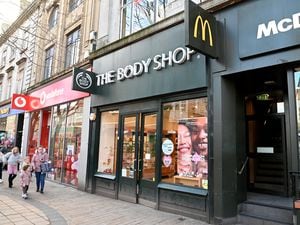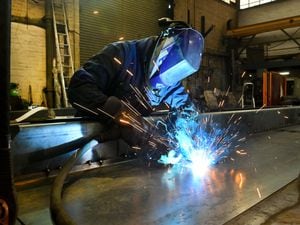CVA deal could keep Body Shop trading
Administrators for the Body Shop have said they are pushing for a company voluntary arrangement, which would let the business keep trading and pay off its debts over time.

The administrators said that they had won support from Aurelius, the business that bought the Body Shop less than four months ago, to push ahead with the plan.
They said that the £600,000 the Body Shop owes to employees for pay, pension contributions and holiday pay would be paid in full under the plan. Even if the plans for a so-called CVA failed, that money should still be paid out.
The Body Shop fell into administration in early February after previous forecasts for how much funding it would need to keep going proved too low.
In the weeks that followed, administrators said that hundreds of jobs would be lost and dozens of shops closed.
Closures have included branches in Wolverhampton city centre, Telford, Stafford and Lichfield.
Shops at the Merry Hill shopping centre at Brierley Hill, Cannock's McArthur Glen Designer Outlet West Midlands and Shrewsbury's Darwin Shopping Centre are still trading.
The business had previously expected that its peak funding requirement would be £63 million, but it later had to revise this forecast to "in excess of £100m", a report sent from the administrators to creditors showed.
That difference, combined with the Body shop's "poor trading performance" meant shareholders "could not commit to the required level of funding," a report from FRP Advisory said.
Aurelius's deal to buy New York-listed Natura & Co was announced in mid-November and completed at the end of December.
The administrators said that once the acquisition had been completed "it became apparent that the short-term cash position of the company was adverse to that that had been forecast".
Over Christmas, before Aurelius took over, the Body Shop "depleted" its stock and repaid what it owed from a £60m loan facility. Its debts to creditors also increased during the period.
"As a result, January 2024 saw a higher requirement to fund working capital plus certain exceptional costs that were not foreseen," the report said.
The Body Shop was founded by Dame Anita Roddick in 1976, trading out of a small shop in Brighton originally and made its name selling cruelty-free fairtrade products.
But, administrators said, in the late 1990s, the company was "no longer offering a distinctive product" at an "agreeable" price as other brands adopted similar policies and stricter laws came into force.
In 2006, the company was sold to cosmetics giant L'Oreal "who deviated from the core values that drove the brand's earlier success," FRP said.
Natura bought the business in 2017 and "attempted to return ... to its founding principles".
That effort was "ultimately unsuccessful" in getting consumers interested again.
By the time it was bought by Aurelius, the business had 197 shops in the UK, directly operated in 20 other countries and had franchises in another 68 countries.
FRP started closing many of these shops after being appointed as administrators. On February 20, it announced 329 redundancies at the Body Shop's head office and distribution centres. It would also close seven shops and make the workers there redundant.
On March 1, it added that a further 75 shops would close, with 425 staff being impacted.
But it said in the report that a CVA "can be achieved and is therefore being pursued".
It said that Aurelius had indicated support for this and said it would not immediately demand back money it is owed by the Body Shop.
It added: "If this is not possible, the administrators will seek a sale of the business and assets."





